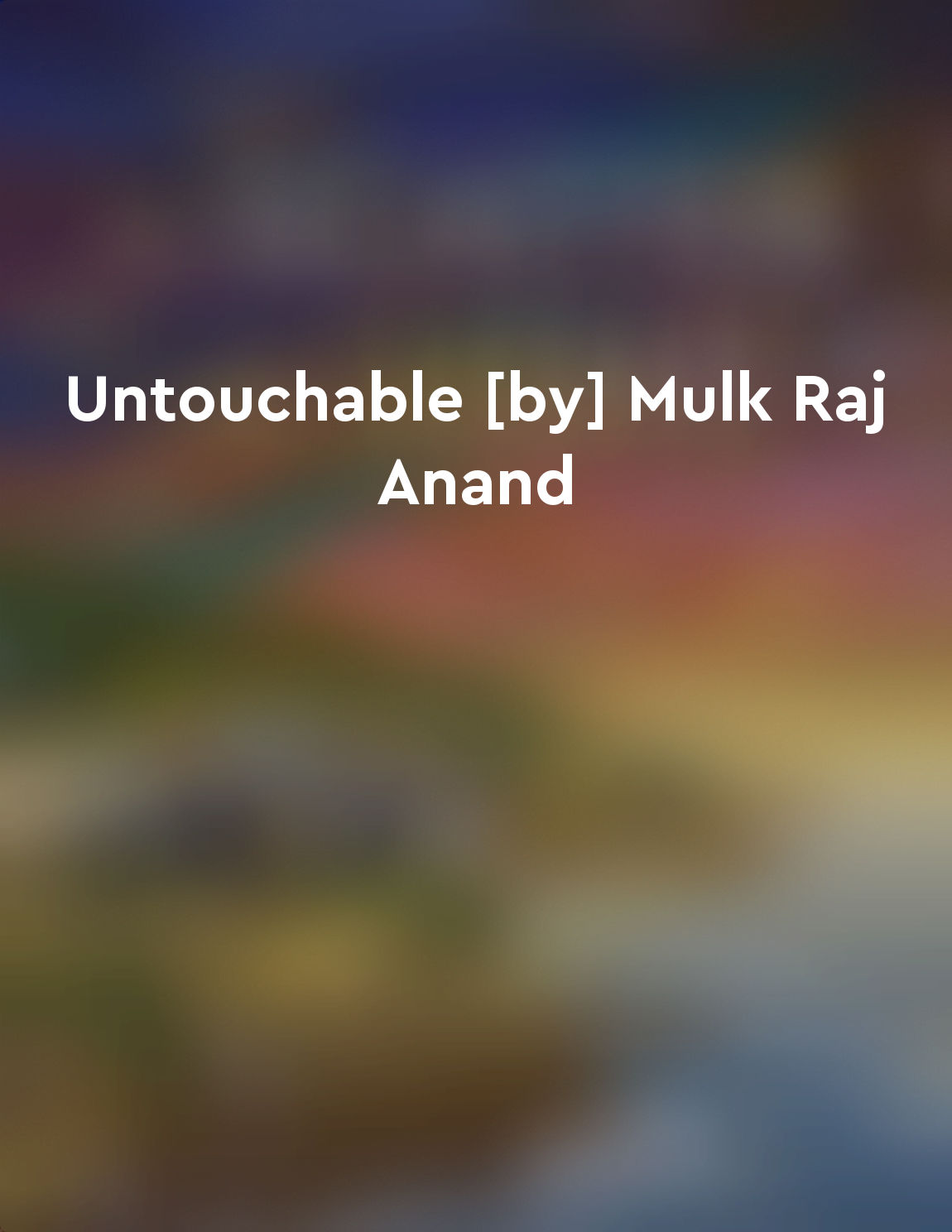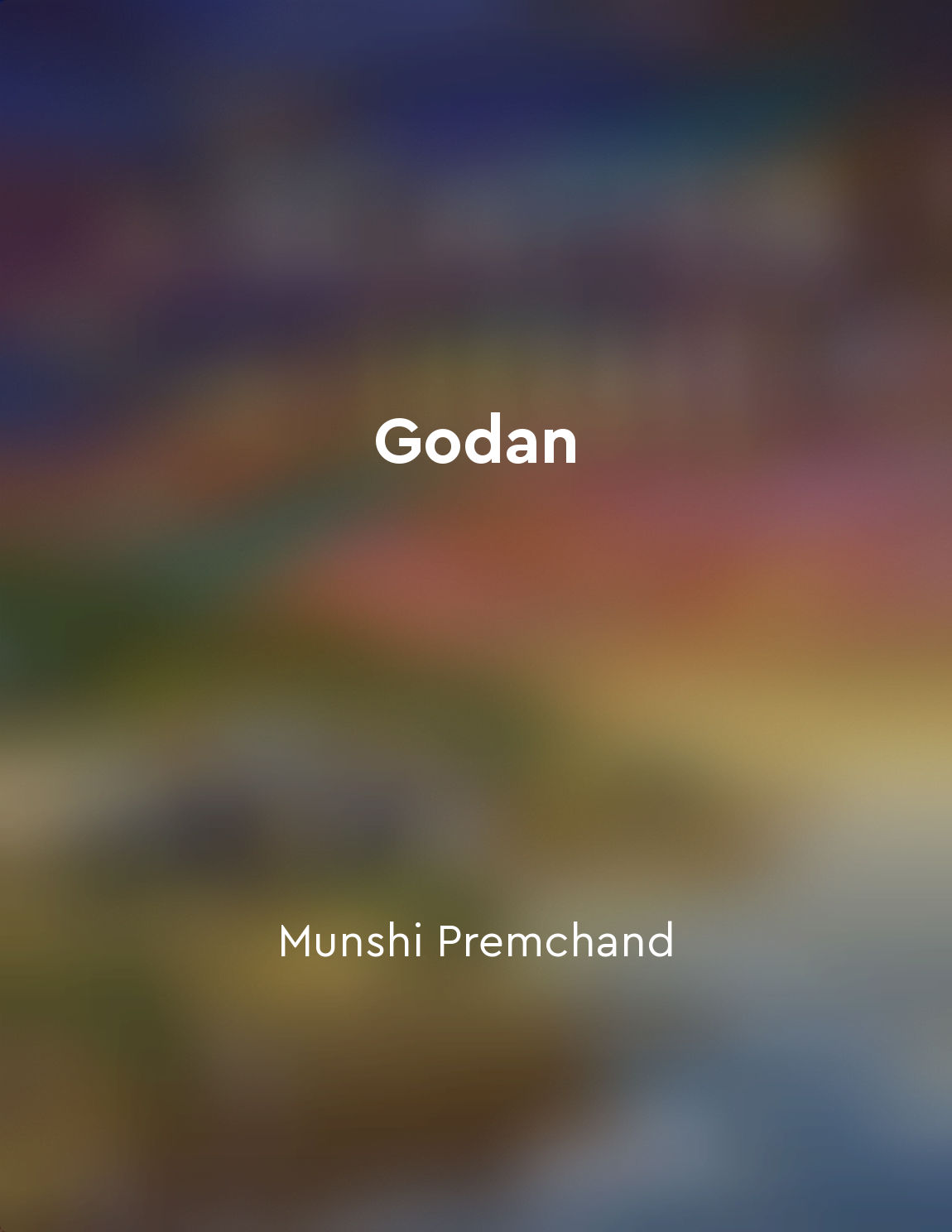Bakha is considered an untouchable in Indian society from "summary" of Untouchable [by] Mulk Raj Anand by
Bakha, the protagonist of the novel, is deemed an untouchable in Indian society. This label is not merely a physical distinction, but a deep-rooted societal construct that dictates every aspect of Bakha's existence. As an untouchable, Bakha is relegated to the lowest rungs of the social hierarchy, condemned to a life of degradation and discrimination. From a young age, Bakha is made acutely aware of his status as an untouchable. He is constantly reminded of his inferiority through the disdainful looks and cruel remarks of those around him. Bakha's very presence is seen as polluting to higher-caste individuals, who go to great lengths to avoid any contact with him. This ostracization serves to reinforce Bakha's sense of worthlessness and perpetuate the cycle of discrimination. The untouchables, including Bakha, are assigned menial tasks such as cleaning latrines and removing waste – jobs considered too impure for higher-caste individuals to perform. This division of labor is not based on skill or merit, but on the arbitrary notions of purity and pollution that underpin the caste system. Bakha's physical labor is not only a means of subsistence, but a constant reminder of his social status and the limitations placed upon him by society. Despite his intelligence and aspirations for a better life, Bakha is denied opportunities for education and advancement due to his untouchable status. The discriminatory practices and attitudes that permeate Indian society serve to keep Bakha and others like him trapped in a cycle of poverty and oppression. The very fabric of society is woven with the threads of caste hierarchy, ensuring that individuals like Bakha remain marginalized and excluded. In the eyes of society, Bakha's untouchability is not just a characteristic, but a defining feature that shapes his interactions, opportunities, and self-perception. The dehumanization of untouchables like Bakha is so deeply ingrained in Indian society that it is often taken for granted, accepted as an unchangeable reality. Bakha's struggle for dignity and equality is not just a personal quest, but a reflection of the larger social injustices that pervade his world.Similar Posts
Jammu & Kashmir's unique cultural and historical identity was something Dr Ambedkar celebrated
Dr. Ambedkar's admiration for Jammu & Kashmir's exceptional cultural and historical identity shines through in his writings. He...

Bakha's quest for dignity and respect resonates with readers on a universal level
Bakha's relentless pursuit of dignity and respect strikes a chord that reverberates across cultures and generations. As readers...

Critique of societal norms and values
The novel "Godan" sheds light on the deep-rooted societal norms and values that govern the lives of the characters. Premchand m...
Striving for acceptance and forgiveness
Throughout the story, the characters are constantly seeking validation and redemption from others. This desire for acceptance s...

The novel centers around a day in the life of a young sweeper named Bakha
The sun rose over the city, casting its golden light on the narrow streets and crowded alleys. In the midst of this bustling me...

Main character's journey towards redemption
Hori, the main character in 'Godan', embarks on a tumultuous journey towards redemption, facing numerous obstacles and challeng...

The novel's message of hope and resilience is timeless
The enduring power of the novel lies in its portrayal of the indomitable human spirit in the face of adversity. The protagonist...
The human capacity for both good and evil
In one corner of Amir's mind, there was a shadow that lingered - a memory of a moment that defined the complexity of human natu...
Harsh living conditions fuel desperation
Desperation was a common thread that ran through the lives of the residents of Annawadi, an overcrowded slum nestled in the sha...
